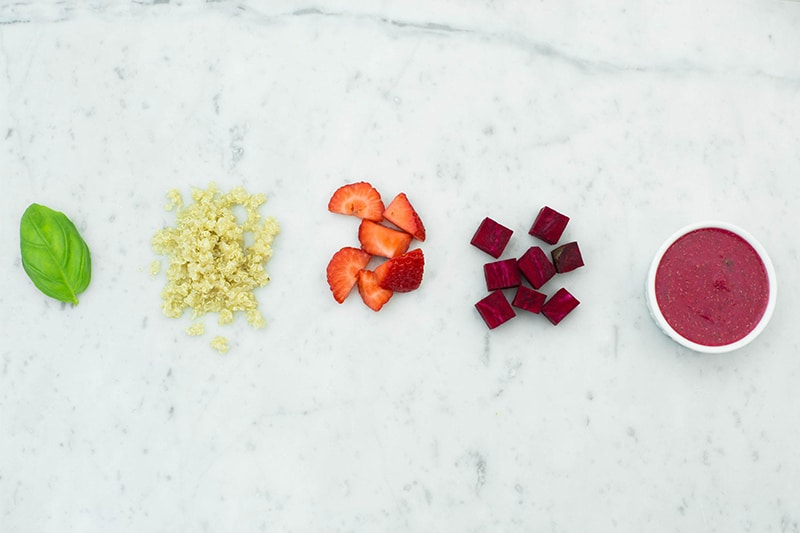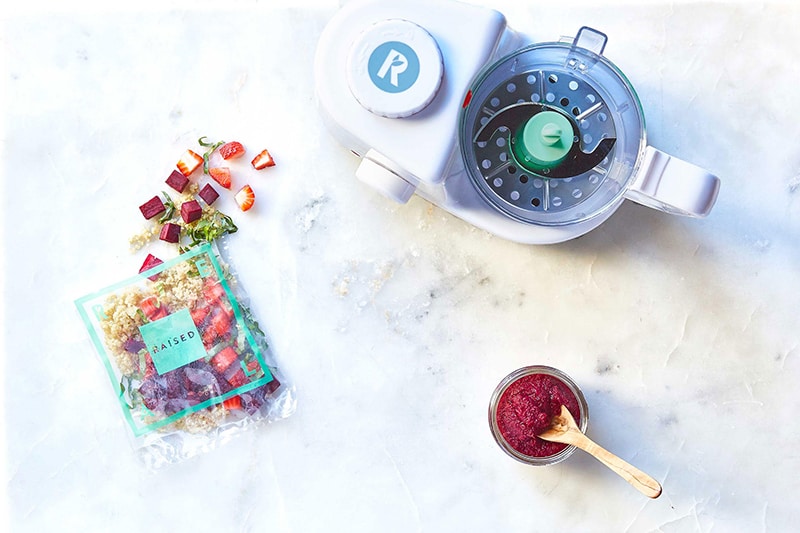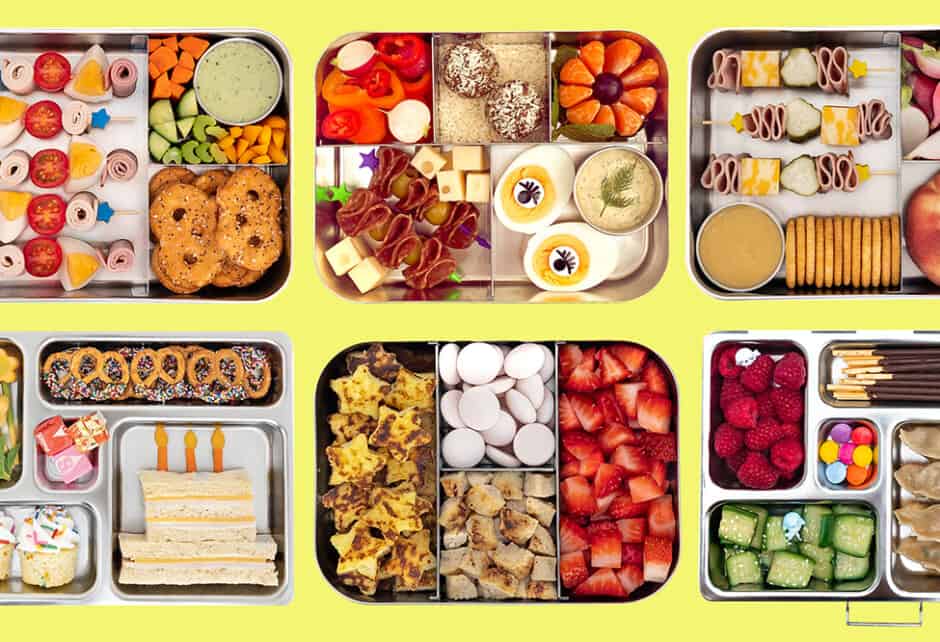
5 Key Nutrients for Infants
Written by Michelle Davenport of Raised Real & Katie Hintz-Zambrano
Photography by Photo Via Raised Real
For babies just starting solids, you might be wondering exactly which nutrients are key building blocks for little brains and bodies. To provide an easy cheat sheet, we asked Dr. Michelle Davenport, registered dietitian and PhD in Nutrition, mother of a toddler, and co-founder of Raised Real—a service delivering organic and fresh ready-to-blend baby food combos right to your home—to give us the lowdown.
Protein and Fat: Parents should look for a mix of ingredients to reach the right balance of calories, protein, and fat. Aim for 100 calories, 3g protein, and 30% fat in each meal. For most parents, it’s unrealistic to hit this ideal balance every time, but as long as you’re including healthy fats and proteins, you’re on the right track. An easy way to add healthy fats: try avocados, ground seeds like sacha inchi or tahini, and coconut—both the milk and butter.
Choline: Choline is essential for brain development. One of the areas of your baby’s brain most thirsty for choline is the memory-controlling hippocampus. Getting enough choline in their first few years can boost your child’s memory for life. An easy way to add choline: try quinoa, broccoli, or add an egg yolk into your baby’s meal.
Phytonutrients: The color in your fruits and vegetables signals the presence of powerful phytonutrients like anthocyanins, beta-carotene, and flavonoids, which have protective anti-inflammatory properties. To help your baby absorb these phytonutrients as much as possible, pair them with a healthy fat. An easy way to get enough phytonutrients: try mixing coconut milk, a healthy-fat powerhouse, with sweet potato.
Iron: Babies start to lose the iron from mom around 6 months, so it’s important to make sure they get additional iron through their foods. Iron is critical for every system, from building enough red blood cells to developing your baby’s learning and memory. Animal sources of iron, like meats and liver, are easily absorbed by babies. Iron from plants needs vitamin C to be absorbed—a little-known fact. An easy way to make sure babies get their iron: pair vitamin C-rich foods, like cauliflower, with iron-rich plants, like chickpeas.
Folate: Folate is also important for baby’s brains. In infancy, it plays a large role in everything from supporting proper brain function to supporting the heart, digestive, and nervous systems. An easy way to add folate: try beets, kale, and broccoli with your baby.
For more on this topic, check out our piece on transitioning your baby to solids.
As a working mom, Dr. Michelle Davenport had a problem with her limited options for feeding her baby. As a PhD in Nutrition, she decided to do something about it, and created Raised Real. Raised Real gives both babies and parents what they need: homemade food for tiny humans, in less time. Davenport is on a mission to make it as easy as possible for parents to raise the next generation on real food.
This article comes courtesy of Mother + Raised Real
Share this story





